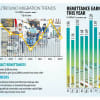We must revitalise the home textile sector

We are concerned about the current state of the home textile sector that has been struggling to regain its lost work orders over the past two years. Reportedly, due to the doubling of gas prices in Bangladesh and a significant devaluation of the Pakistani rupee against the US dollar, many work orders shifted to Pakistan. This shift, combined with a prolonged gas crisis, unstable exchange rates, and rising production costs, has forced numerous factories to shut down, further eroding the sector's competitive edge in the export market. Recent labour unrest and ongoing political instability in the country have worsened the situation further. If these issues are not addressed, the home textile sector will continue to incur losses in the future.
It may be recalled that this sector had experienced notable growth in 2021, with exports surpassing the $1 billion mark, registering a remarkable 49.17 percent year-on-year increase. That momentum carried over into 2022, with exports rising by another 40-odd percent to $1.62 billion. However, as the gas crisis intensified, home textile exports—including bedsheets, tents, rugs, etc—dropped, with earnings falling to $1.09 billion. In FY 2023-24, exports further declined by 2.05 percent to $851.01 million, according to the Export Promotion Bureau (EPB). Industry insiders attribute this downturn to the persistent gas crisis that began in early 2023, following the then government's 150.41 percent hike in gas prices, from Tk 11.98 per unit to Tk 30 per unit. With soaring production costs, many exporters were unable to secure new orders, leading to a shift of international business to Pakistan.
To revitalise the sector, the government must prioritise uninterrupted gas supply to home textile mills so that they can operate at full capacity. As home textile production relies heavily on gas for processes like running steam boilers and dyeing fabrics, the sector's energy needs cannot be sustainably met by imported gas alone. It is crucial, therefore, for the government to explore and develop domestic gas fields rather than relying solely on imports. Unlike Pakistan, which produces much of its own raw materials, Bangladesh depends on external markets, making the ongoing dollar crisis an additional hurdle. That needs to be resolved, too.
We urge the government to take necessary steps to stabilise the sector and support its needs. Doing that will not only help the home textile sector recover but also secure its long-term position in the global market.


 For all latest news, follow The Daily Star's Google News channel.
For all latest news, follow The Daily Star's Google News channel. 







Comments